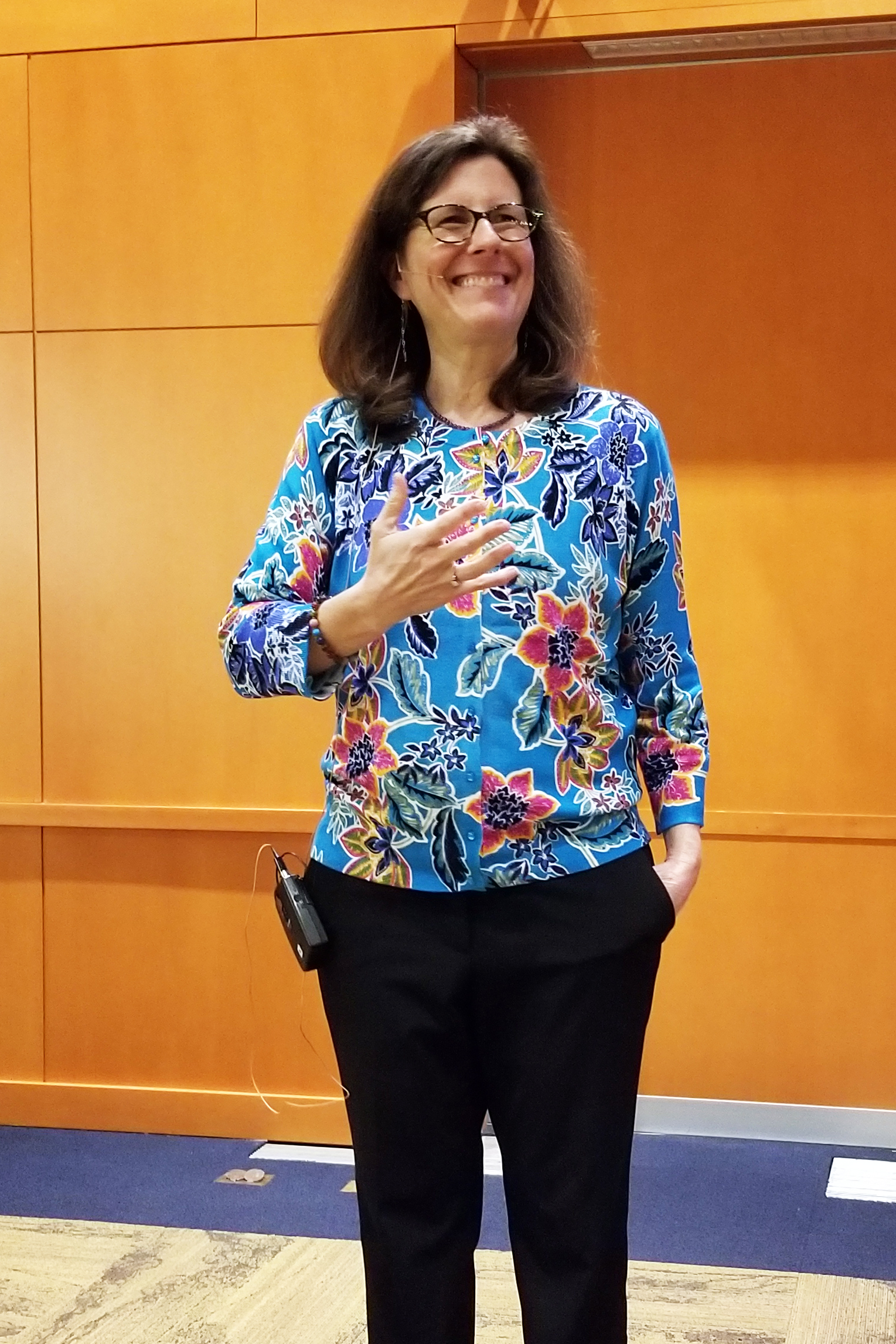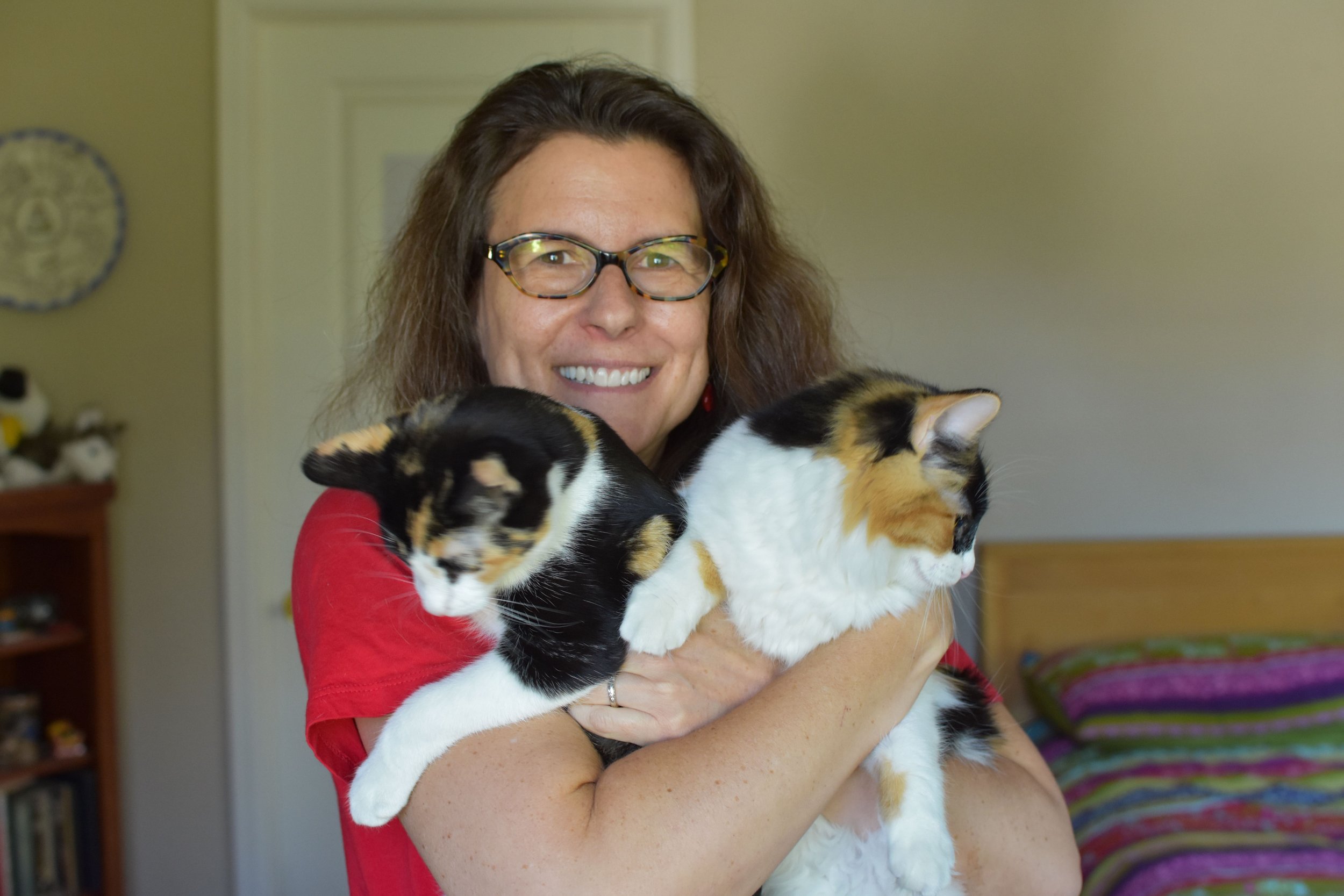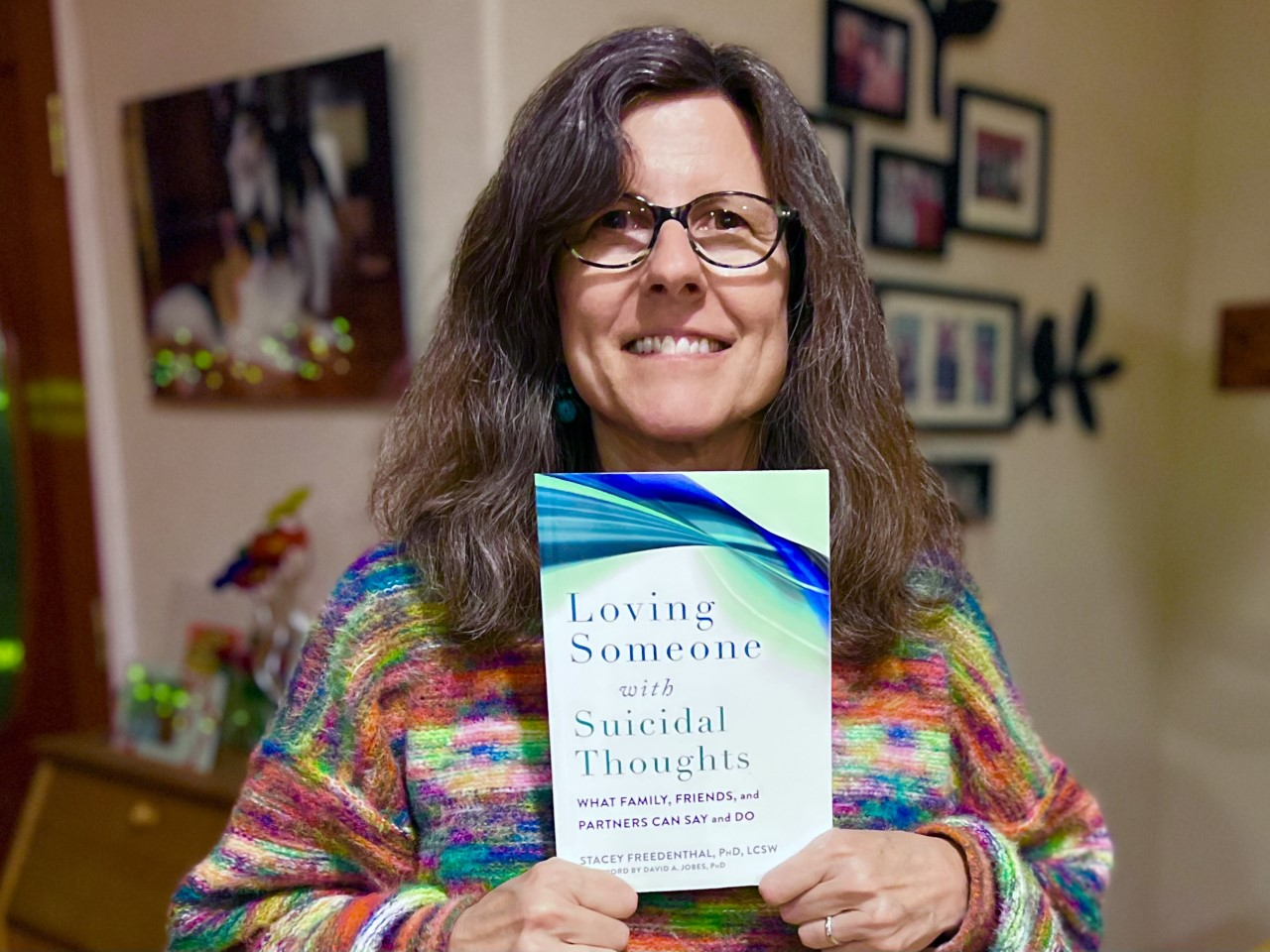Overview
I have been surveying workplaces about their confidence and competence in supporting coworkers who are going through hard times. What I have found is that most people care deeply about the people they work with and have a strong willingness to help. I have discovered that many workplaces successfully show up for their employees when they have experienced a medical crisis for themselves or a family member or when there is a natural disaster, but when it comes to suicide, they get the “deer in the headlights” response.
Dr. Stacey Freedenthal is an associate professor of social work and a leader in the national conversation on suicide prevention. She knows what she’s talking about because she has lived through her own experiences with suicidal intensity. On this podcast she gives us tools on what to do if you are worried about a coworker who may be thinking of taking their life.
About Dr. Stacey Freedenthal
Stacey Freedenthal, PhD, LCSW, is recognized nationally and internationally for her expertise in helping people who have suicidal thoughts. Her new book is Loving Someone with Suicidal Thoughts: What Family, Friends, and Partners Can Say and Do (New Harbinger Publications, 2023). Dr. Freedenthal also authored the book Helping Someone with Suicidal Thoughts: Tips and Techniques for Professionals (Routledge; 2018), and she created and maintains the website Speaking of Suicide. She has authored or co-authored more than two dozen peer-reviewed articles and book chapters about suicidal intent, youth suicidality, mental health service use, and other topics related to suicide.
Dr. Freedenthal is an associate professor at the University of Denver Graduate School of Social Work, and a psychotherapist and consultant in private practice. She focuses her clinical work on helping people who have experienced suicidal thoughts, attempted suicide or lost someone they love to suicide. She has provided training and consultations to audiences throughout the U.S. and in the United Kingdom, Australia, New Zealand, and U.S. naval bases in Japan and Guam.
Dr. Freedenthal is personally acquainted with the realities of suicidal thoughts and acts. She first experienced suicidal thoughts at age twelve. In high school, a friend killed himself just a couple hours after hugging her goodbye at a party. In her twenties, Dr. Freedenthal attempted suicide twice; she recounts one of these attempts in a piece for The New York Times, “A Suicide Therapist’s Secret Past.” Other loved ones of Dr. Freedenthal, as well, have experienced suicidal depression.
In her first career, Dr. Freedenthal was a journalist; she worked as a staff writer for The Dallas Morning News from 1990 to 1994. She started working in suicide prevention in 1995, as a volunteer for a suicide hotline. After earning a master’s degree in social work from the University of Texas, she worked in various crisis settings, including a psychiatric emergency service, psychiatric hospital, rape crisis center, and general medical hospital emergency room. She then earned her Ph.D. in social work at Washington University in St. Louis and subsequently joined the faculty of the University of Denver (DU) Graduate School of Social Work. At DU, Dr. Freedenthal has taught courses on suicide assessment and intervention, clinical social work practice and theory, mental health assessment and diagnosis, social justice challenges to mental health, and cognitive behavior therapies.
Dr. Freedenthal lives in Englewood, CO, with her husband, Pete. They have an adult son, now in his twenties, and more than a few cats.
Contact Information
Show Notes
Dr. Freedenthal’s New Book: Loving Someone with Suicidal Thoughts: What Family, Friends, and Partners Can Say and Do
Dr. Freedenthal’s Other Book: Helping the Suicidal Person: Tips and Techniques for Professionals
eHarmony Cat Lady: https://youtu.be/sP4NMoJcFd4
Research: Does asking about suicide put an idea in someone’s head? Answer, “no.” Gould MS, Marrocco FA, Kleinman M, et al. Evaluating Iatrogenic Risk of Youth Suicide Screening Programs: A Randomized Controlled Trial. JAMA. 2005;293(13):1635–1643. doi:10.1001/jama.293.13.1635 https://jamanetwork.com/journals/jama/article-abstract/200641
BOOK: How to Talk So Kids Will Listen & Listen So Kids Will Talk
TRAINING: LivingWorks: https://www.livingworks.net/













